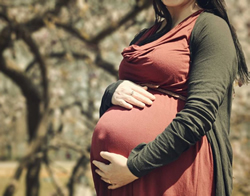 Expectant parents who lose an unborn child due to another person’s criminal act stand to be better supported while offenders face tougher sentences under a suite of proposed reforms announced by the Attorney General last week.
Expectant parents who lose an unborn child due to another person’s criminal act stand to be better supported while offenders face tougher sentences under a suite of proposed reforms announced by the Attorney General last week.
The Attorney, Mark Speakman said the proposed new criminal offences would recognise the loss of an unborn child as a unique injury and loss for the pregnant woman and other family members.
“Currently, there is no stand-alone offence of causing the loss of an unborn child,” Mr Speakman said.
He said the Crimes Legislation Amendment (Loss of Foetus) Bill 2021 proposed the creation of two new offences in the Crimes Act 1900.
Mr Speakman said one of the proposed offences, ‘Causing the loss of a foetus’, was a stand-alone offence which would apply to a wide range of criminal acts and carry a maximum penalty of five to 28 years’ imprisonment.
The Attorney General said the combined maximum sentence for this offence and the existing criminal offence would be three years higher than what was currently available under existing law.
He said the second proposed offence, ‘Causing the loss of a foetus (death of pregnant woman)’ could be charged with a homicide offence where the foetus was lost and the pregnant woman was killed due to a third party criminal act.
“This offence will carry a maximum penalty of three years’ imprisonment and apply in addition to the maximum penalty for the homicide offence,” Mr Speakman said.
“These can be charged where the foetus was at least 20 weeks or 400 grams weight.”
He said the proposed reforms would also allow family members to make victim impact statements to the courts; claim funeral costs for the loss of an unborn child caused by a car accident; and be eligible for a one-off $3,000 payment when the accused was charged with one of the proposed laws.
The Attorney General said the proposed amendments did not affect reforms introduced by the Abortion Law Reform Act 2019 and the offences would expressly exclude any act or omission by the pregnant woman.
“Significantly, these reforms are not intended to displace the centuries old ‘born alive rule’, which provides that a crime of violence such as homicide can only be committed on a legally recognised person – a status attained when someone is born and takes their first breath,” Mr Speakman said.











